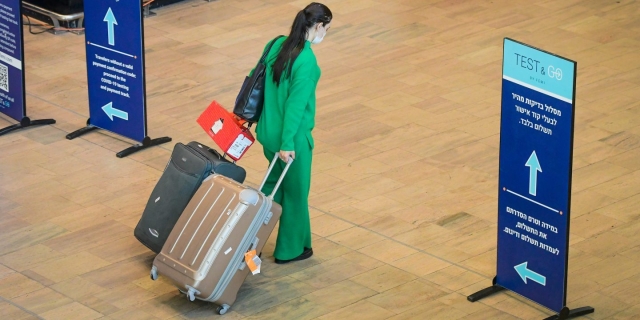The American Food and Drug Administration (FDA) has granted approval this Monday evening for the updated vaccines developed by Pfizer and Moderna to combat the XBB.1.5 strain of COVID. Consequently, the Israeli Ministry of Health is poised to follow suit and approve these updated vaccines, which are expected to reach Israel in the coming weeks.
While the Pfizer and Moderna vaccines are not specifically designed to target the prevailing COVID strains worldwide, the manufacturers assert that they still offer robust protection against these strains, including generating an immune response against the emerging BA.2.86 strain, currently making its way across the globe. The FDA, in concurrence, has affirmed that these vaccines provide ample protection against the circulating variants.
In the United States, the vaccines are likely to be administered to children aged six months and older, in line with the guidelines set forth by the Centers for Disease Control and Prevention (CDC). Both Pfizer CEO, Albert Bourla, and Moderna CEO, Stéphane Bancel, have urged Americans to receive their COVID vaccinations alongside their annual flu shots.
🚨 Breaking: Israel Ministry of Health orders all hospitals to conduct PCR Covid tests for all admitted patients 🤯
— Dr. Eli David (@DrEliDavid) September 5, 2023
Here we go again... pic.twitter.com/sjpoDCk0fa
It's worth noting that the FDA has not yet reached a verdict on the Novovax-produced vaccine, which differs from the Pfizer and Moderna vaccines as it relies on protein-based technology, an established method used in vaccines of previous generations. In contrast, Pfizer and Moderna employ mRNA technology, which essentially instructs immune cells to produce proteins that trigger an immune response against the coronavirus.
Meanwhile, the global battle against COVID persists, with a rise in infection rates and hospitalizations in Israel and elsewhere. Nevertheless, the current infection rate has not reached the heights witnessed during the earlier stages of the pandemic, and the number of seriously ill patients remains notably lower.
One key factor contributing to the reported low morbidity rate is the absence of mandatory testing. Consequently, the data predominantly relies on self-reporting by patients who take home tests. Those who prefer can still avail themselves of private testing centers or engage in remote testing through two private companies. Updated guidelines for individuals testing positive recommend self-isolation for the duration of symptoms.
🇮🇱Here we go: A Jerusalem high school decided to shift classes to Zoom, learn-from-home, because of multiple Covid “cases”.
— Efrat Fenigson (@efenigson) September 10, 2023
Some people just don’t learn. 🤦🏻♀️
Let me add this data to elaborate on teens’ situation in Israel:
The recent annual report of the Child Safety Council is… https://t.co/TiwJlMUZAK
Simultaneously, the arrival of updated COVID vaccines in Israel is anticipated towards the end of October or the outset of November. Concurrently, the flu vaccine campaign is well underway across the country. Initially, it was advised to receive both vaccines concurrently, each administered in a different shoulder. However, due to the availability of flu vaccines, health authorities now recommend that the general public proceed with COVID vaccination to safeguard against severe illness.


